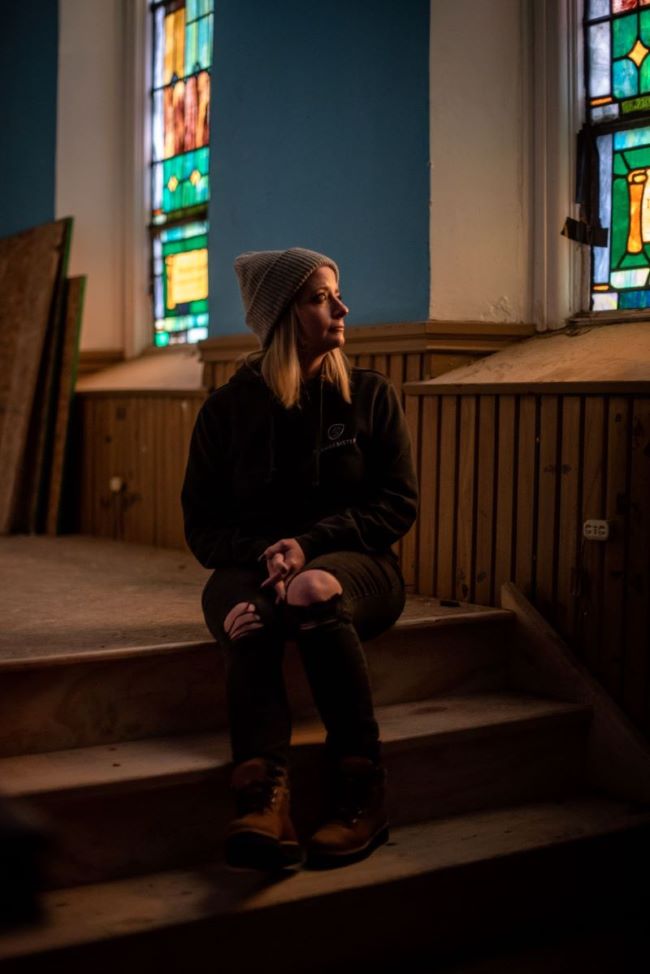
For years, Kali felt she had a handle on her heroin use, supporting herself with a job in the restaurant industry and renting her own apartment. But in 2019, she began using a street mix of fentanyl and “tranq,” the street name for a veterinary tranquilizer called xylazine. She lost her job. She lost her home. She began sleeping on the streets in Kensington.
She first learned about Prevention Point’s services when she sought treatment for Hepatitis C. That’s where she met Brad, who would later become her case manager.
“My entire path, I wouldn’t be here without Brad,” she says. “He’s literally seen me from the beginning, when I was homeless and had matted hair and lice and was in and out of jail.”
Suboxone, and later Sublocade, helped her curb and then stop her use of addictive substances. She found a place to live with help from the Office of Addiction Services. She’s now gone more than a year without using and wants to become a recovery specialist, supporting others the way Brad supported her.

“Brad helped me become a human again. He believed in me when I didn’t think I could do this,” she says. “I never thought I’d be seated in a recovery house, on an iPhone, talking to you, and putting my resume out on Indeed. This is my life now and it’s fucking amazing.”
While she’s not yet working as a recovery specialist, she has become the go-to person for others in recovery. When a friend told Kali he wanted to stop using addictive substances, she connected him with Brad, who gave the man his cell phone number and answers calls when he’s not on the clock.
“I want Brad to know how much I appreciate him,” Kali says. “When the program works, people don’t come back and you don’t get to see what you’ve done for other people… We all need to have someone like Brad and Prevention Point.”